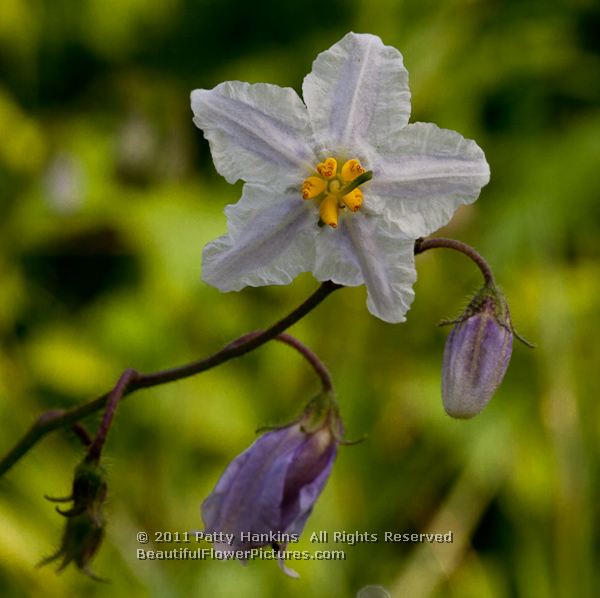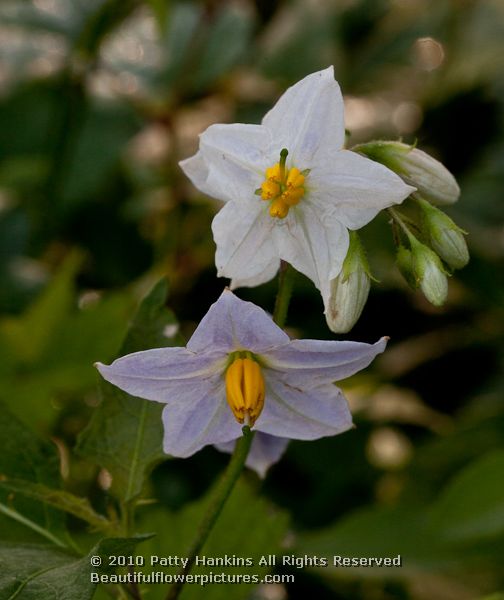Horse Nettle (solanum carolinense) is a small wildflower that I’ve photographed on several occasions. A member of the Solanaceae (Nightshade) family, horse nettle is native to much of the United States – it is native from the east coast to as far west as Nebraska and Texas. It has spread beyond it’s native range and can be found as far west as California.
When I’ve found it – it’s usually a short plant with with flowers – under six inches tall. It often grows in fields and disturbed areas. The white, yellow or purple star-like flowers sit atop a stem filled with prickles. Be sure to wear gloves if you’re going to be handling horse nettle.
Horse Nettle can be very difficult to remove if it establishes itself in the wrong location. Eradication usually involves deep hoeing to remove all the roots. If the roots aren’t removed – it will return.
Like other members of the nightshade family, horse nettle contains solanine, which is poisonous and can be toxic to both humans and grazing animals if consumed in large doses.
You can learn more about Horse Nettle on the following websites




